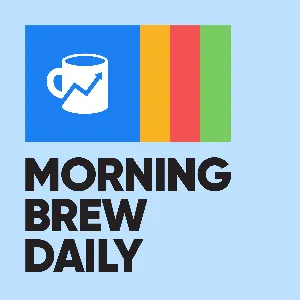Podcast Summary
Video game industry's human cost: Long work hours and organizing for better conditions: The video game industry's demanding work hours, or 'Crunch,' are being challenged as workers demand better conditions and aim to make it a thing of the past.
The video game industry, known for its complex and immersive products, comes with a human cost in the form of long, grueling work hours, a practice known as "Crunch." This demanding schedule has long been accepted as necessary for producing high-quality games on time. However, attitudes towards Crunch are changing, and video game workers are organizing to demand better conditions and make Crunch a thing of the past. Meanwhile, the BBC, a sponsor of NPR, serves as a provider of diverse stories that inspire, engage, and make us think, allowing us to broaden our perspectives beyond our immediate experiences. And for those looking for affordable mobile phone plans, Mint Mobile offers unlimited talk, text, and data plans for $15 a month with a 3-month commitment.
The Passion Tax in Game Industry: Long Working Hours and Unpaid Labor: Game industry workers often face long hours, unpaid labor, and lack of job security. Passion for the craft can lead to exploitation, highlighting the need for industry recognition and reforms.
The video game industry, like many creative fields, requires a significant passion and dedication from its workers, often leading to unpaid labor or less than ideal working conditions. Skyler Hinnant, a quality assurance tester at ZeniMax, shared his experience of starting as a contractor with no benefits or job security, and the normalization of long working hours, known as Crunch. According to a 2021 survey, 1 out of 4 game developers worked over 60 hours a week, with some reports indicating even more extreme schedules. For instance, writers for Red Dead Redemption 2 worked 100 hours a week for three weeks, and employees at Epic Games regularly worked at least 70 hours a week on Fortnite. Although some companies acknowledge these extreme hours and are attempting to address the issue, the creative nature of game development can lead to unexpected challenges, making long hours a persistent issue. Ultimately, the passion tax paid by game industry workers underscores the importance of recognizing and addressing the potential for exploitation in creative industries.
Game development's labor challenges: crunch and tight deadlines: Marxist perspective highlights large reserve army of labor, iron triangle of project management perpetuates crunch in game industry, but workers remain dedicated despite harsh conditions, efforts to improve working conditions ongoing
Video game development is a labor-intensive process with tight deadlines and budgets, leading to crunch periods where workers put in long hours. Game writers like Em are dedicated to their craft and care deeply about the final product, but are often at the mercy of game developers and executives who are under pressure to release games as quickly and cheaply as possible. From a Marxist perspective, there is a large reserve army of labor in the game industry, meaning that there are many people willing to work under harsh conditions for lower pay. This allows companies to keep labor costs low and maintain tight deadlines. The iron triangle of project management, which requires delivering the game on time, on budget, and within scope, further constrains the flexibility of the development process, making crunch a common occurrence. Despite the challenges, game workers continue to put in long hours out of love and dedication for the medium they adore. However, there are efforts being made to address crunch and improve working conditions in the industry.
Game workers unionize for better wages and conditions: Game workers are unionizing to secure better wages, protections against layoffs, and a more comfortable work environment. Recent unionizations at Microsoft and Sega include pay raises and recall rights for laid off workers.
Video game workers are taking matters into their own hands to improve their working conditions. While some studios are making efforts to combat crunch through comp time or extra pay, employees are also unionizing to secure better wages, protections against layoffs, and a more comfortable work environment. The recent unionization of Microsoft's first US union at The Witcher studio and Sega of America are part of a larger trend among younger workers who want to make their workplaces more livable. The SEGA contract includes pay raises and recall rights for laid off workers, which is especially important in the current industry climate where mass layoffs have become common due to increased production costs, decreased growth, and failed investments in new technologies. The unionization movement offers a glimmer of hope for workers like Elise Willica, who were recently laid off from Sega and are now relieved to have recall rights. However, the industry-wide layoffs have been demoralizing, and the future remains uncertain as companies navigate these challenges.
The Rewards and Challenges of Working in the Video Game Industry: Despite challenges, workers in the video game industry remain passionate and committed, striving for better games and a more humane workplace.
The video game industry is facing challenges that have led some workers to feel disillusioned, but many, including those interviewed for this episode, remain passionate about the field and hope to make it more humane and stable for everyone involved. Working in the industry can be incredibly rewarding, and the efforts of dedicated workers can lead to better games. Despite the challenges, those in the industry express a deep love for it and a commitment to staying involved. The NPR team producing this episode also encourages listeners to check back for more insights on the industry in the final episode of the series. Additionally, this episode was sponsored by Mint Mobile, offering affordable wireless plans, and ShipBob, simplifying inventory management and fulfillment for ecommerce businesses.






